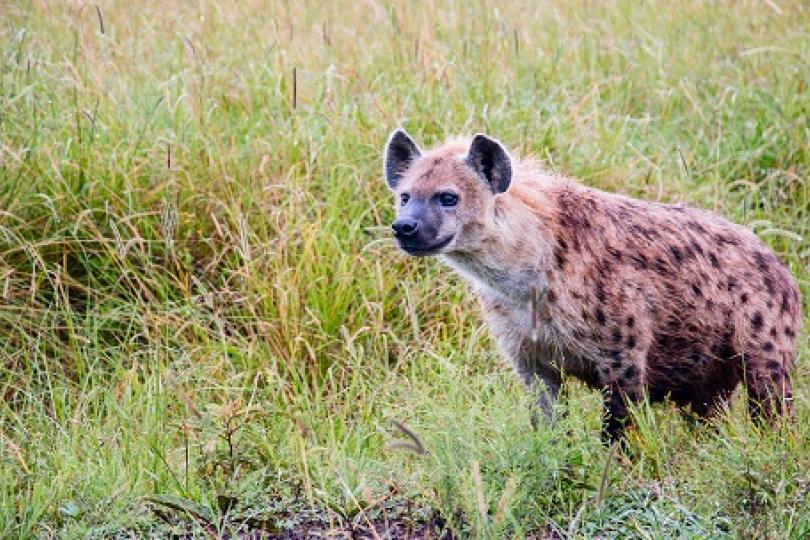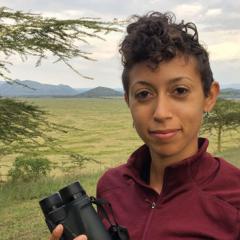‘We scientists engage in soft diplomacy’: Mongabay Q&A with Christine Wilkinson
Mongabay interviewed Christine Wilkinson about why hyenas get such a bad rap, her dream of a solar-powered camera-trap grid, and her work bringing together other African American scientists in mammalogy.
Christine is a carnivore ecologist, Switzer Fellow, National Geographic Explorer and postdoctoral researcher at the University of California, Berkeley, who uses technology to examine interactions between humans and wildlife in East Africa and California.
Her work is interdisciplinary, using participatory mapping to include local communities in her work and learn about how peoples’ perceptions about carnivores affects conflicts with them.
Christine also notes that human-wildlife conflicts areas are rooted in human-human conflict, often based in socioeconomic and sociopolitical contexts as well as histories.
Keep reading for an excerpt from the interview about Christine's work with Black Mammalogists Week, and find summary of the interview and full length Q&A here.
Mongabay: You are also one of the co-founders of Black Mammalogists Week. Can you tell me a more about that? How did that start?
Christine Wilkinson: We created Black Mammalogists Week after seeing the success and really widespread reach of the other weeks, like Black Birders Week was the first one, and then all these other weeks.
I’m a National Geographic Explorer and I saw an article in one of the NatGeo platforms that referred to my friend Rae [Wynn-Grant] as being the only African American female large-carnivore ecologist in the world. And I was like, I know at least a few more. [Wilkinson said in a follow-up that she contacted NatGeo about it and they changed the article to reflect what she said.]
This means that we are not connecting with one another, and we need to build that community. Rae and I and one other person got together with that as the catalyst to find and bring together Black mammalogists and mammal enthusiasts to provide tangible ways to connect and support one another. Now, not only do we have community, but we also have these role models that are really visible for people to look up to.
It’s our way of addressing systemic racism in academic and conservation spaces in the United States, while also boosting mammalogists and mammal enthusiasts from the African diaspora around the world.
We really are kind of using this initiative in the hope that young and aspiring conservationist mammalogists will be inspired and know that the community is here for them. And at the same time, we’re doing some other tangible things, like we have a big scholarship through the American Society for Mammalogists that we raised the money for. We raised about $50,000, which means we’re about $10,000 away from our endowment, and then it’ll be there for perpetuity. That’s a super-exciting aspect of it as well.

